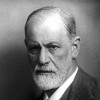“ If a man is virtuous without being conscious of his integrity in every action, he will certainly not enjoy life, however favourable fortune may be to him in its physical circumstances ”
Immanuel Kant, Critique of Practical Reason (1788). copy citation
| Author | Immanuel Kant |
|---|---|
| Source | Critique of Practical Reason |
| Topic | integrity action |
| Date | 1788 |
| Language | English |
| Reference | |
| Note | Translated by Thomas Kingsmill Abbott |
| Weblink | http://www.gutenberg.org/cache/epub/5683/pg5683-images.html |
Context
“How is such a disposition possible in the first instance, and such a habit of thought in estimating the worth of one's existence, since prior to it there can be in the subject no feeling at all for moral worth? If a man is virtuous without being conscious of his integrity in every action, he will certainly not enjoy life, however favourable fortune may be to him in its physical circumstances; but can we make him virtuous in the first instance, in other words, before he esteems the moral worth of his existence so highly, by praising to him the peace of mind that would result from the consciousness of an integrity for which he has no sense?”
source



